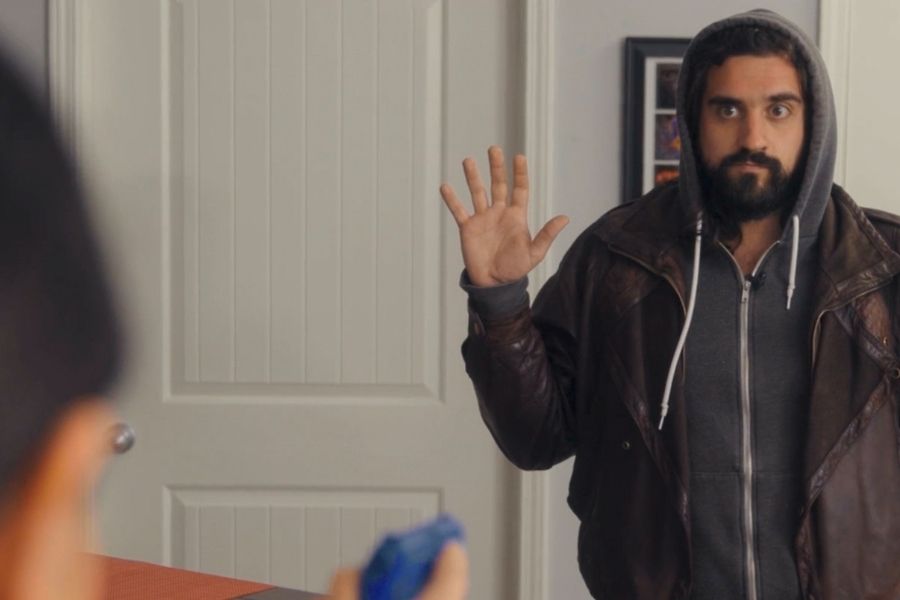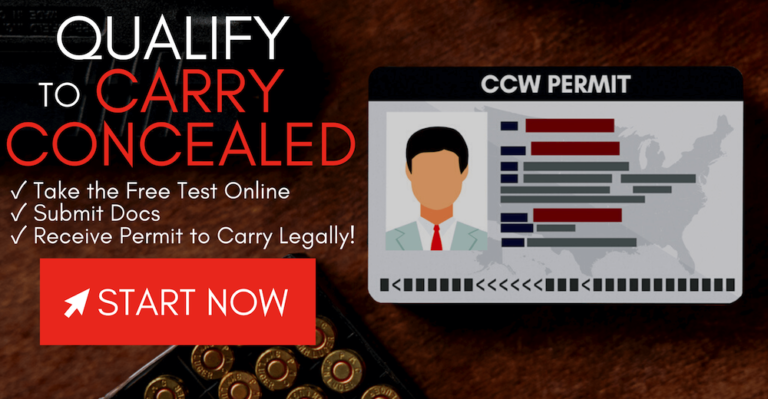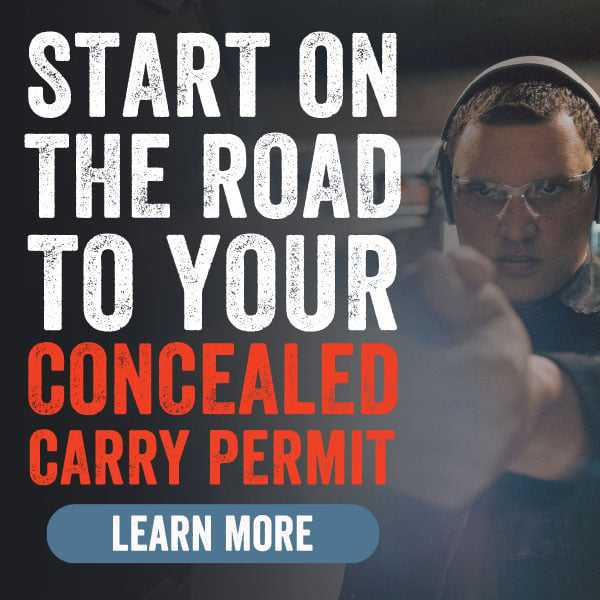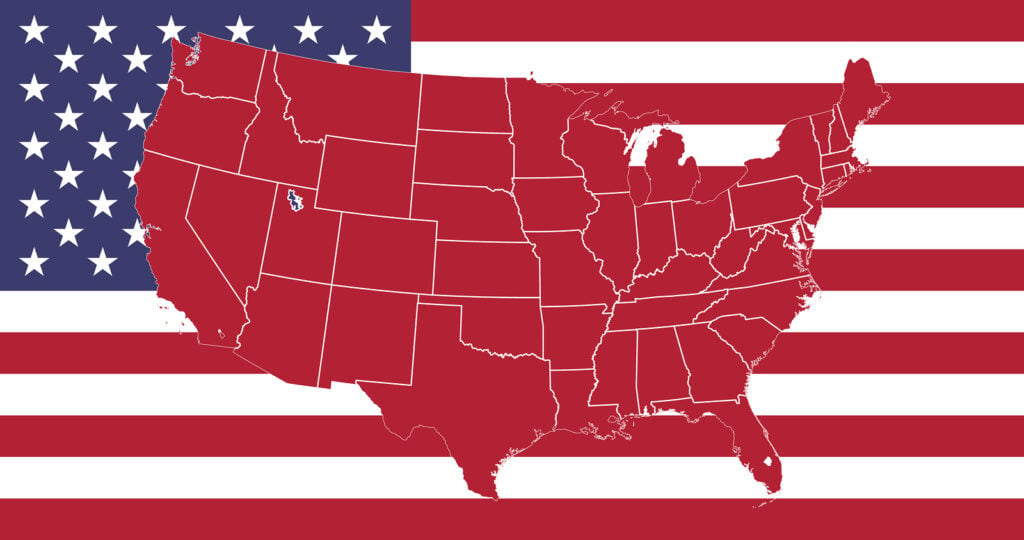Hello Concealed Coalition! Austin Davis here, and every week I answer your questions. This week’s question is very interesting. It is, “Austin, what do I tell an intruder who enters our home?”
Good question, but let’s try something before we answer this question. Before we deal with talking to somebody in our home, we need to understand a few things.
Home Intruder Deterrents: The Protective Layers
To me, home security is not about what I say to someone at gunpoint. It’s developing a holistic, multi-stage approach. You should have three layers of home defense, and these three layers are very important before you get to the point where you’re talking to someone inside your personal space.
Psychological Protection
The first layer is psychological protection. I’m going to say this and it’s one of the rare times I use an absolute statement: All crime starts with a thought in the criminal’s head. So I don’t look at you and your house and say “I want that house,” “I want those people in the house,” or “I want that property in the house.”
We have to make sure we have a comprehensive plan so there’s nothing that attracts them to the property. Remember, your home is the one place you should not only be safe, but you should also feel safe.
So what I want you to do is understand a concept called CEPTED (Crime Prevention Through Environmental Design). We cover that more in depth in Concealed Coalition University’s Home Defense section.
Physical Security
The second and third factors are good physical security and actual protection. We also cover that in Concealed Coalition University. So if a home intruder picks your house, they have to break a lot of wood, splinter a lot of glass, and bend a lot of metal in order to actually get into your home.
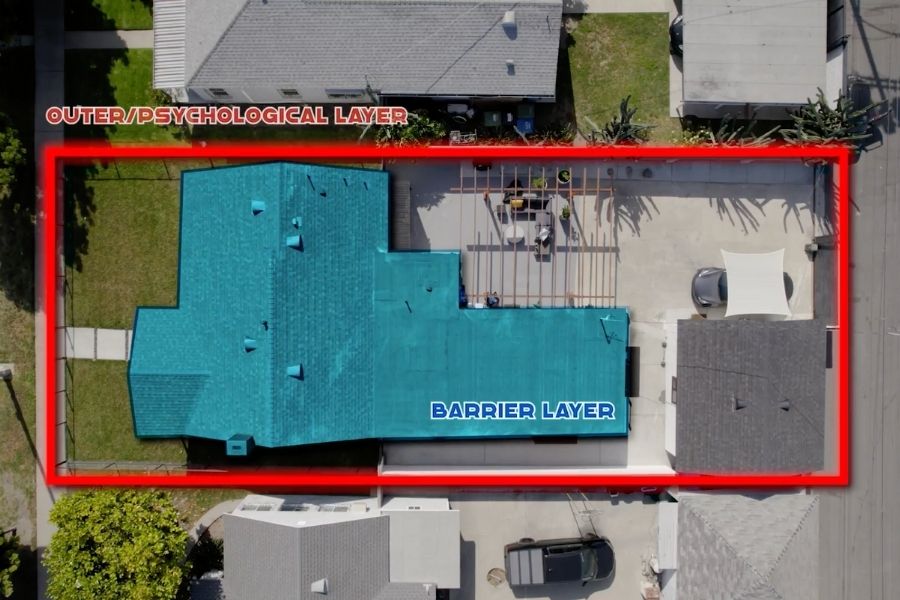
What do I say to a home intruder?
Now we’re dealing with that part about what to say to a home intruder. You may decide not to address them at all. For example, someone coming in with a hockey mask and a chainsaw and rushing at you is a person you can clearly identify as not meant to be there.
You may also decide to give a warning. If you do want to give a warning, one of the things I’ve got programmed in my head as a verbal loop is yelling out, “What’s your name?!”
Think about it: If someone says, “It’s your cousin Bill!” or “It’s your wife Penny!” that tells me an awful lot about what’s going on.
On the flip side, if they go, “Uhhh… Ralph,” I don’t know a Ralph, and no Ralph should be in my house. That also tells me an awful lot. If you do make contact with him, make sure you have enough light to not only control the situation blind, but also to make sure you see the whole body, including the hands and waistline. Once you control them and you want to give a verbal command, remember verbal commands come in three forms.
The Three Forms of Verbal Commands
Freeze!
The first form is freeze, as in “FREEZE! Don’t move!”
At that point, I want to make no motion at all. When I say freeze, I need the home intruder to stop. The reason you need to stop is because the situation may be happening extremely fast. Telling a home intruder to freeze allows you to catch up if you feel behind the curve.
Pin Them
The next thing you might want to say is a command to pin the home intruder. When I say this, I don’t care if they move their hands (as opposed to when they froze when I don’t want them to move their hands). This way, I just want to keep them from coming any closer to me, a weapon, or my children. I’m just trying to pin them in that one spot.
Move Them
I may also need to give a verbal command to move the intruder, such as “Face away!” In this case, I want to turn them around. I want to take their visual horizon away, then I want to start moving them. Move left, move left, move left. Take your left hand, put it on the door, open the door, leave. These are all good, clear verbal commands.

Being Assertive While Maintaining Innocence
Now one thing you may have noticed is that I didn’t use any profanity. Not that I’m not occasionally going to drop an F bomb out there, but here’s the deal: One of the things I want to do is make sure I maintain my innocent status, and I don’t want to escalate the situation. Yelling out of profanity may do that.
I think if it’s on a ring or surveillance camera, profanity looks like we’re a little more out of control and it could harm our ability to declare ourselves an innocent victim later on.
But more importantly, when this is going on, I’m jacked up on stress chemicals, and so is the person I’m trying to control. Yelling things like “Don’t move! I’ll shoot you, you dirty so and so!” is just unnecessary verbiage when I’m just trying to get clear commands that go into his little hypothalamus (which at this point is kind of hijacked in a bad way).
So what we want to do is have a good firm, clear voice. Now how do you make these voices? Loud enough.
Also note that jumping at someone and going face to face might jack up the home intruder into doing something bad. Make sure your response and your tone and tempo is appropriate for what’s going on.
So what do you say when somebody comes in your house? First thing you should say is, “Wow, I can’t believe somebody’s in my house because they picked me when they didn’t have anything that drew them to the house.” Then “Wow, I can’t believe they’re in the house because they had to bend a lot of glass, splinter a lot of wood, and bend a lot of metal to get in here.”
And if the home intruder has made it inside, using verbal commands to affect an outcome is the ideal move. Freeze them, pin them, or move them.

But make sure all these things are practiced beforehand. That’s one of the reasons why I want you, as a member of the Concealed Coalition community, to come see me in a Virtual Tactical Academy class so I can hold your hand and take you through the first three or four gunfights in a controlled environment. That way if you get to this point, your brain is not overwhelmed by the events. Instead, it understands that this is weird, but not that novel, so you have a place to start with.
So please come see me soon at a Virtual Tactical Academy event. It’s one of the many ways I love connecting with the Concealed Coalition community.
And if that seems like a lot, just remember this is a baseline. Be a guardian always, and a warrior when needed.
